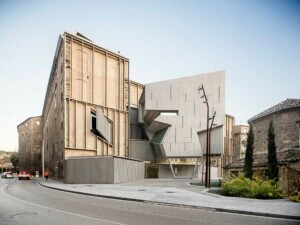Philadelphia’s Benjamin Franklin Parkway is the city’s iteration of Paris’s Champs Elysées—a tree- and grass-lined street connecting prominent locations like Logan Square, the grounds of the Philadelphia Museum of Art, and Fairmount Park. The Family Court Building, adjacent to the parkway at 1801 Vine Street, is another nod to Paris referencing its Place de la Concorde. This area of Philadelphia houses a number of other cultural institutions such as the Free Library of Philadelphia, Barnes Foundation, and the Franklin Institute. Under a new redevelopment plan announced by the city and PIDC, its public-private economic development corporation, several sites abutting the Benjamin Franklin Parkway will be reimagined, adding to area’s abundant history.
National/Frontier, National Real Estate Development and Frontier Development & Hospitality Group, were selected in a joint venture for the redevelopment of two sites adjacent to the Benjamin Franklin Parkway: 1801 Vine Street and 1901 Wood Street. National/Frontier will work with Method Co, Smith & Roller, and BKP Development Group on the project to reimagine these sites to include the new location for the African American Museum in Philadelphia (AAMP) and the expansion to the Free Library of Philadelphia with the new Children and Family Center. Morris Adjmi Architects contributed to the “initial planning and design proposed” for the redevelopment, along with TenBerke, Beyer Blinder Belle, Little Wing Lee Design, Jaklitsch Gardner, Walter Hood, and the developers.
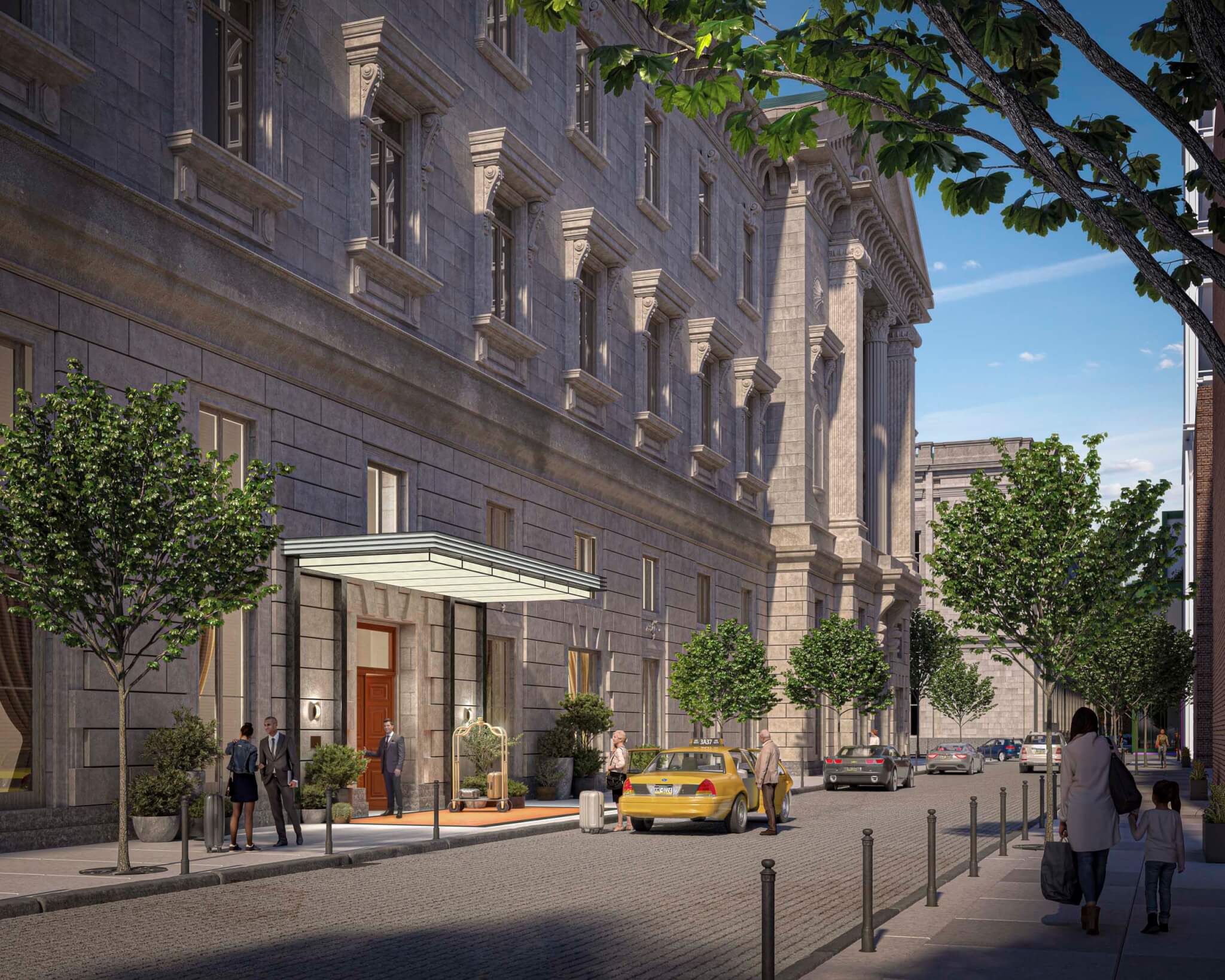
The National/Frontier-led team was chosen for the project through a RFQ and RFP process led by PIDC that launched back in July 2021. In spring 2022 four of the seven responses were shortlisted, with each of the shortlisted teams then participating in an RFP. The winning team was selected by staff from the City’s Department of Public Property, Department of Planning and Development, Free Library of Philadelphia, along with officials from the African American Museum in Philadelphia, Logan Square Neighbors Association, and PIDC.
According to a city press release the proposals were reviewed for specific factors, among them “commitment to equity and inclusion, proposed uses, quality, experience, financial capacity and cost, feasibility, community impact, and the inclusion of an economic opportunity plan.”
Jodie Harris, president of PIDC, said of the National/Frontier proposal, “While all submissions were strong, this proposal offered the best mix of development team diversity, experience, project financing plan, and a very thoughtful design and support plan for both AAMP and Parkway Central Library’s expansion. PIDC is committed to catalyzing major projects that create quality jobs, advance equity, and promote sustainability, and the development team’s integration of history and modern innovation exemplifies the creative vision that will help define the future of the Benjamin Franklin Parkway.”
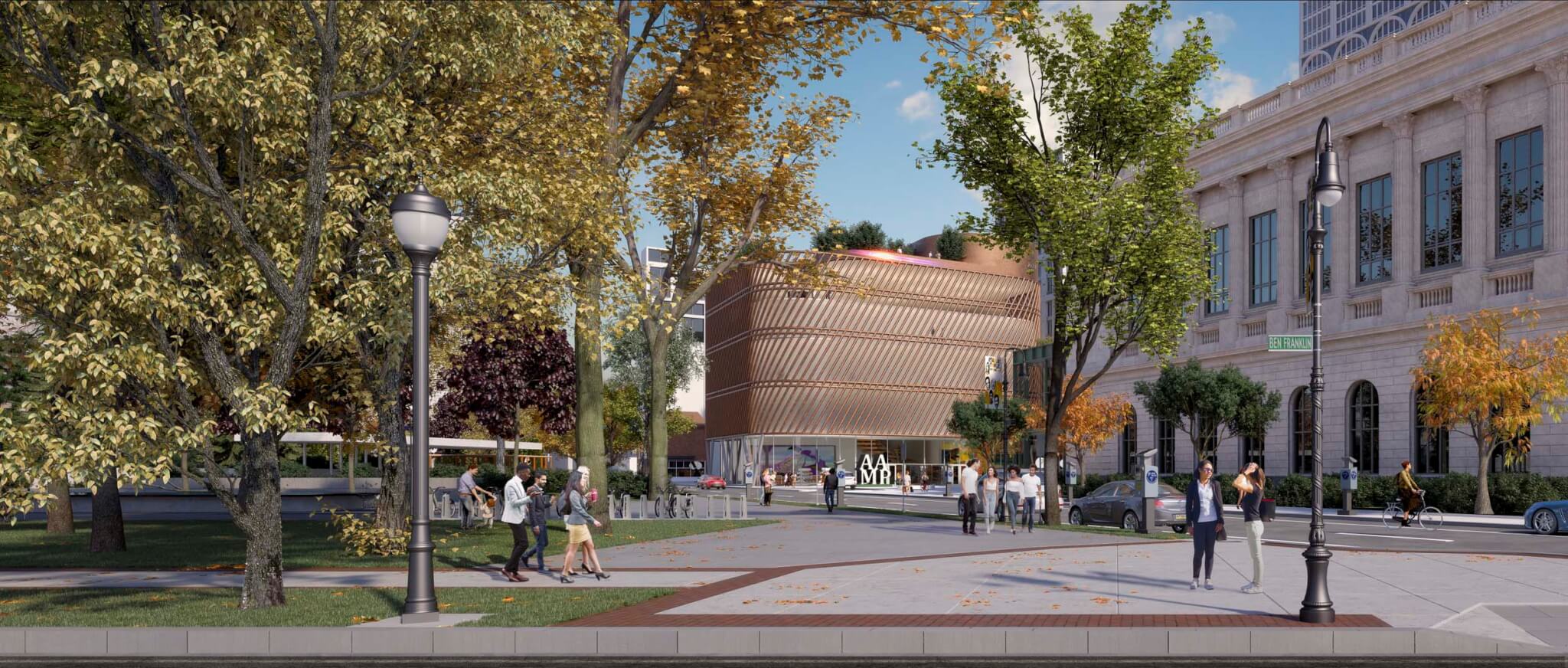
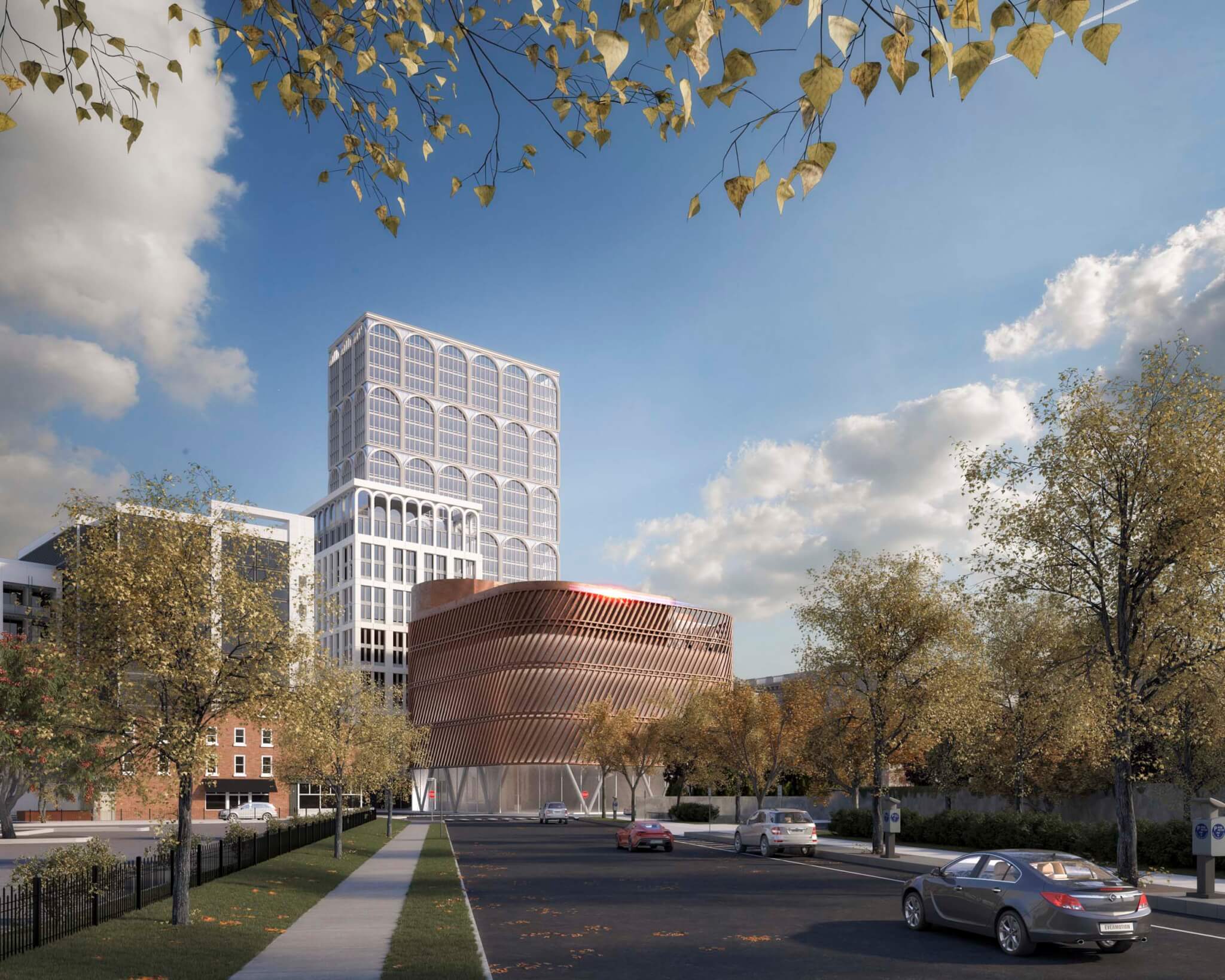
The former Family Court Building moved its operations to Arch Street in 2014. An earlier proposal floated in 2022 put forth the idea to make the historic building the new location for the AAMP. Under the new redevelopment scheme, the former court building will be converted into a boutique hotel with restaurant, bar, and event spaces and the AAMP will be housed at the adjacnet 1901 Wood Street, currently a city-owned parking lot. The expansion to the Free Library of Philadelphia Parkway Central will be nestled between the new museum and the existing court building to house the new Children and Family Center (CFC) and auditorium.
The expansion to the Free Library is rendered as a boxy, glass volume with slats of various sizes lining much of the glazing. Other renderings from the development team for the sites depict the former Family Court Building left largely intact, with several outdoor seating spaces and an activated rooftop. The proposed AAMP building is shown with rounded edges, faced with slanted bronze-colored rods. Its ground floor is completely glazed to provide views to its interiors.
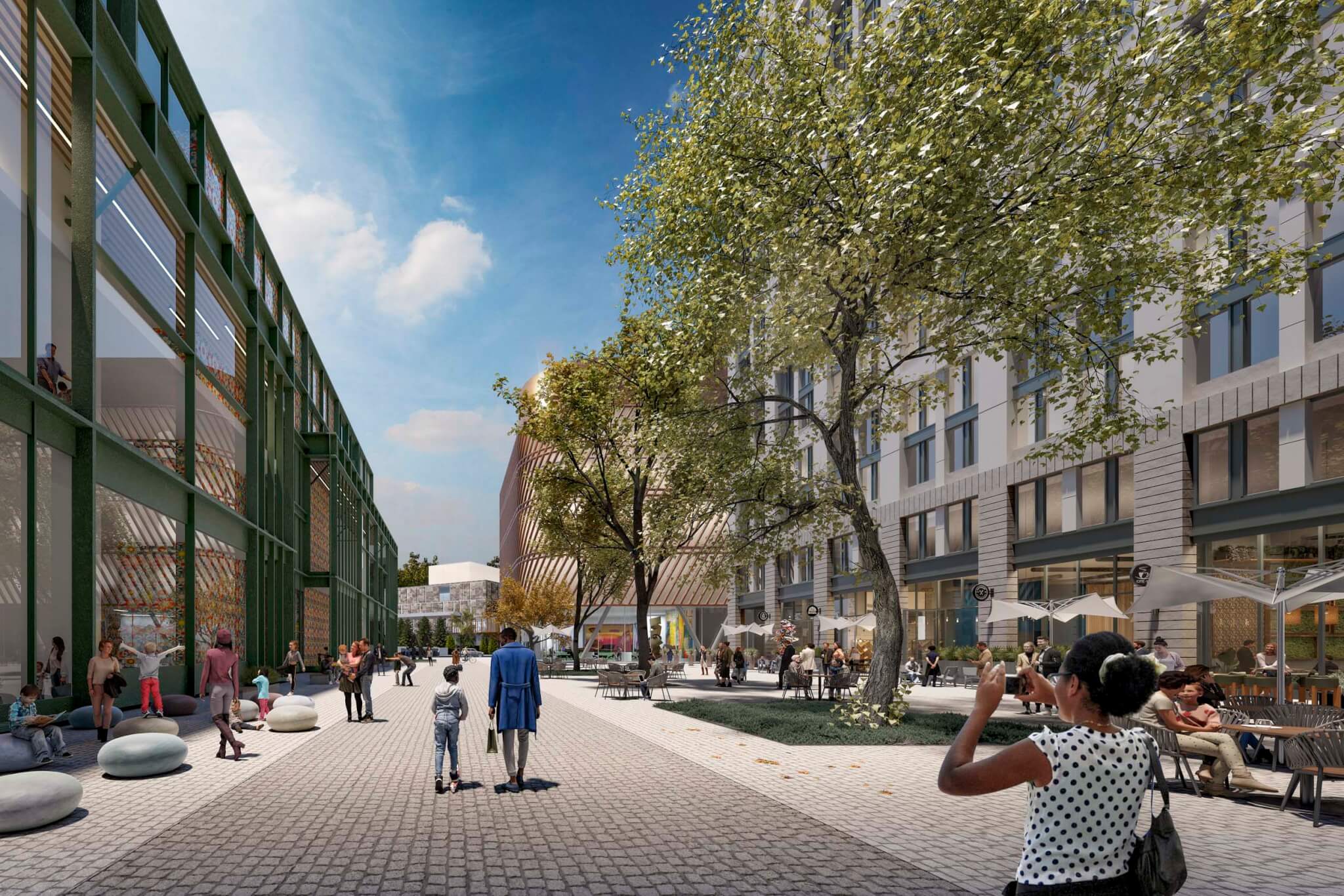
The AAMP opened in Philadelphia nearly 50 years ago. At the time it was the first museum in the country “preserving, interpreting and exhibiting the heritage of African Americans.” Philadelphia Mayor Jim Kenney said, “This project stands as a testament to our commitment to honoring the past while building a future that reflects our values and aspirations. The African American Museum of Philadelphia’s relocation to a brand new facility on the Parkway, the city’s most celebrated cultural thoroughfare, signifies a historic move that rightfully places it alongside Philadelphia’s most prestigious museums.”
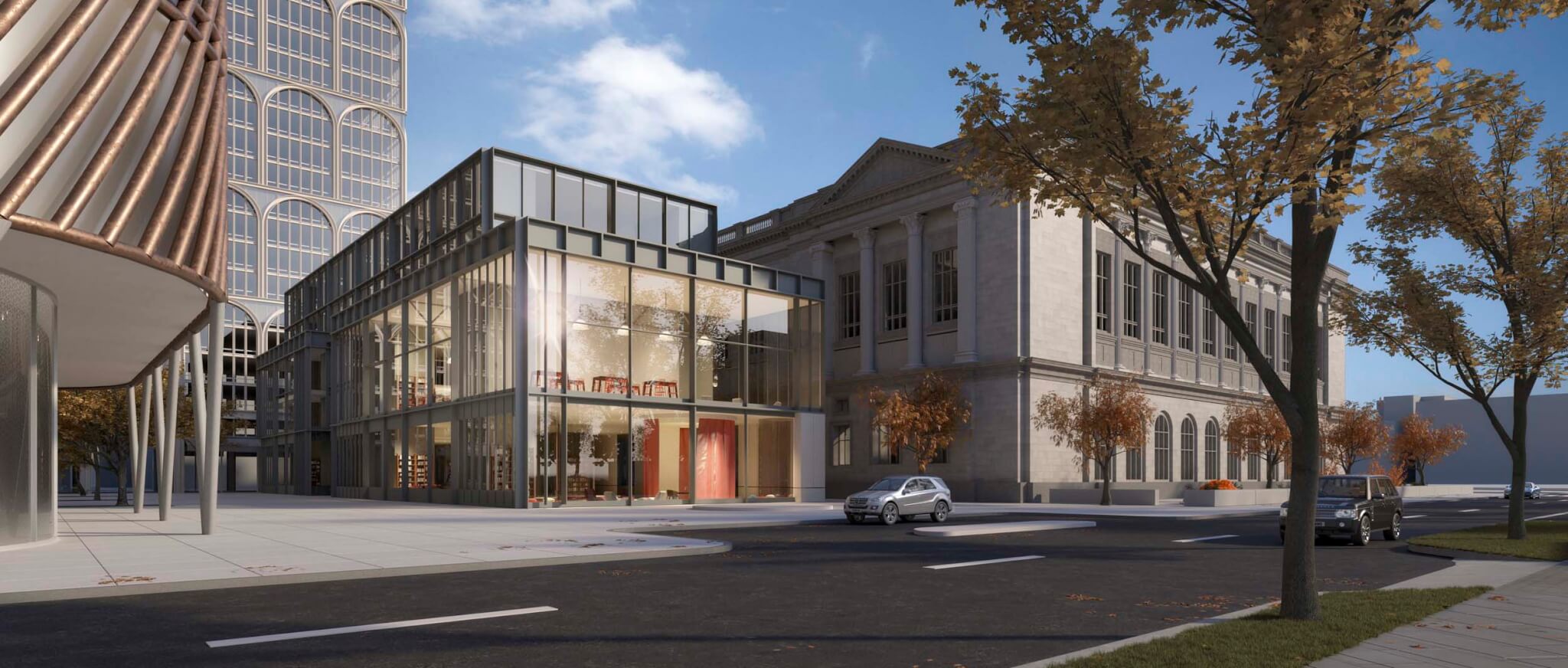
At this point, the developer team is confirmed and has put forth a proposal. Now it must obtain necessary permits and approvals, along with negotiating terms and conditions for the development with the city. Given the project’s size the development team and city anticipate completion of the plan no earlier than 2028.








